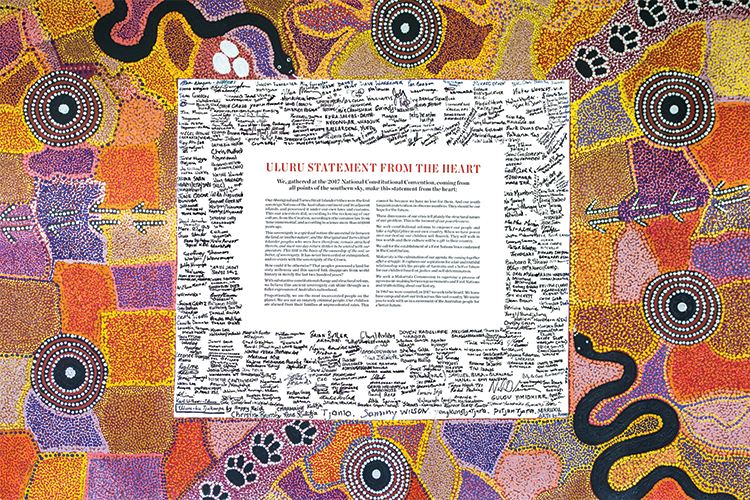Together with other invited experts, the Research Centre’s Director Ann McGrath and Collaborating Scholar Heidi Norman contributed to the Senate Inquiry into nationhood, national identity and democracy.
The Report, which has recently been published, shares some of their insights, particularly in relation to Indigenous history and Australia’s deep past. McGrath noted that ‘the way history is told…shapes the national psyche. It becomes our story’. Noting that there was an increasing appreciation that ‘Australian history goes back to long before 1788. It is a history of the continent long before European settlement’, she urged for a deeper appreciation of Australia’s deep human past.
Knowledge of Australia’s full history goes to the core of what it means to be part of the nation. As McGrath explained: ‘I do remember, with the [2008 Apology to the Stolen Generations], Jackie Huggins on Radio National actually said it was the first day she really felt like she was an Australian, included in the nation. When we look at the relationship between citizenship and nation, it is not only about legal rights, citizenship and the Constitution but also about emotion, sense of belonging…and a collective imaginary, you may call it’. Much of this imaginary comes from understanding Australia’s national history.
Collaborating Scholar Heidi Norman noted the ‘three great streams’, or ‘three epic strands’ of Australian history articulated by Noel Pearson and others, as the ‘ancient Indigenous heritage, which is its foundation; the British institutions built upon it; and the adorning gift of multicultural migration’. She had also described the Uluru Statement as ‘an attempt to build a political strategy, to establish a relationship between First Nations peoples as “a polity” and the state, where previously that relationship had been absent or dysfunctional’.
The Senate Report acknowledged that ‘governments play a key role in building a sense of national identity through articulating national stories. These stories, which offer official versions of Australia’s history, are articulated through official documents, acts of parliament, speeches, events and celebrations, and Australia’s national symbols, including the flag and National Anthem’.
The Research Centre appreciates opportunities to ensure our expertise informs public policy.
